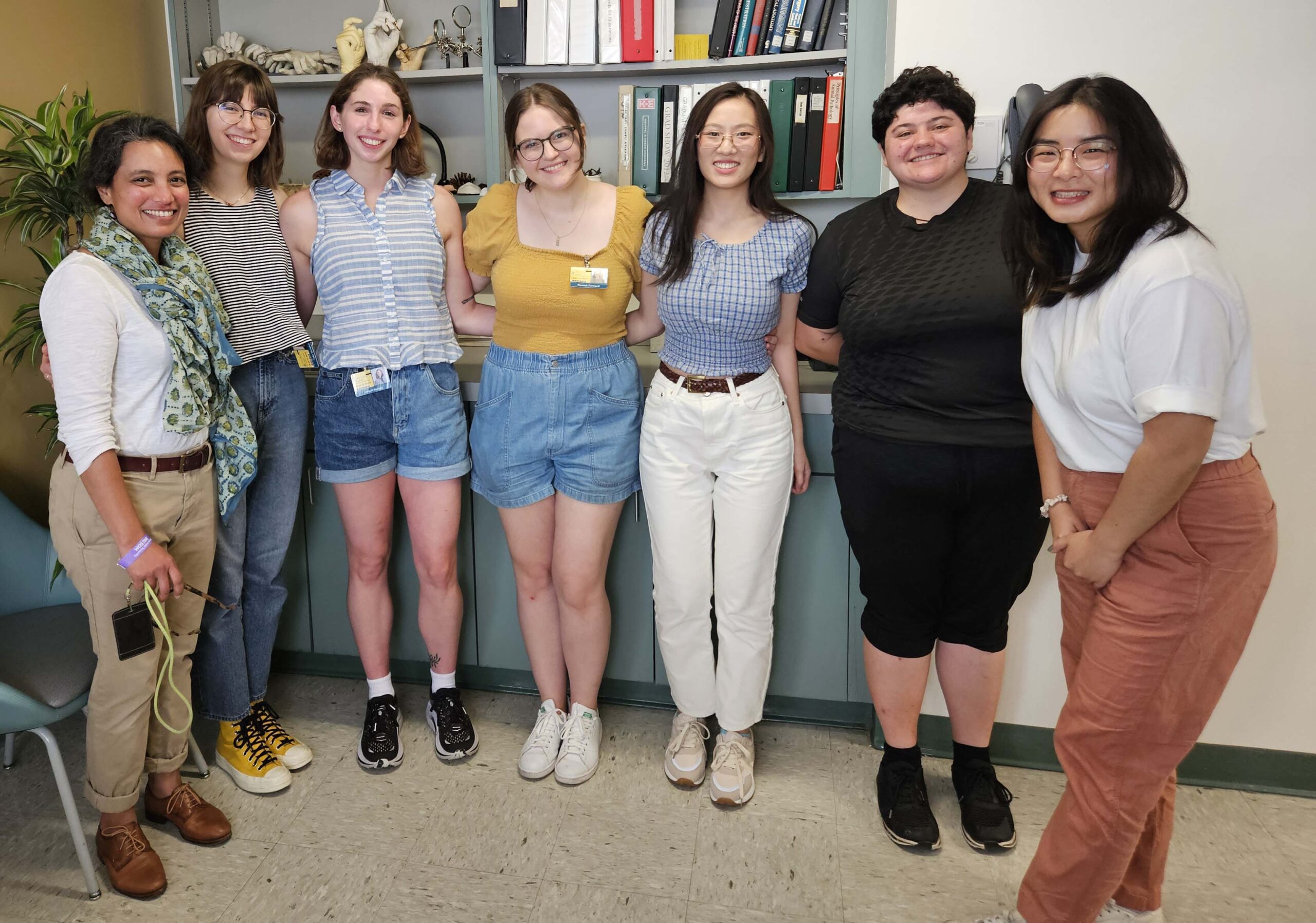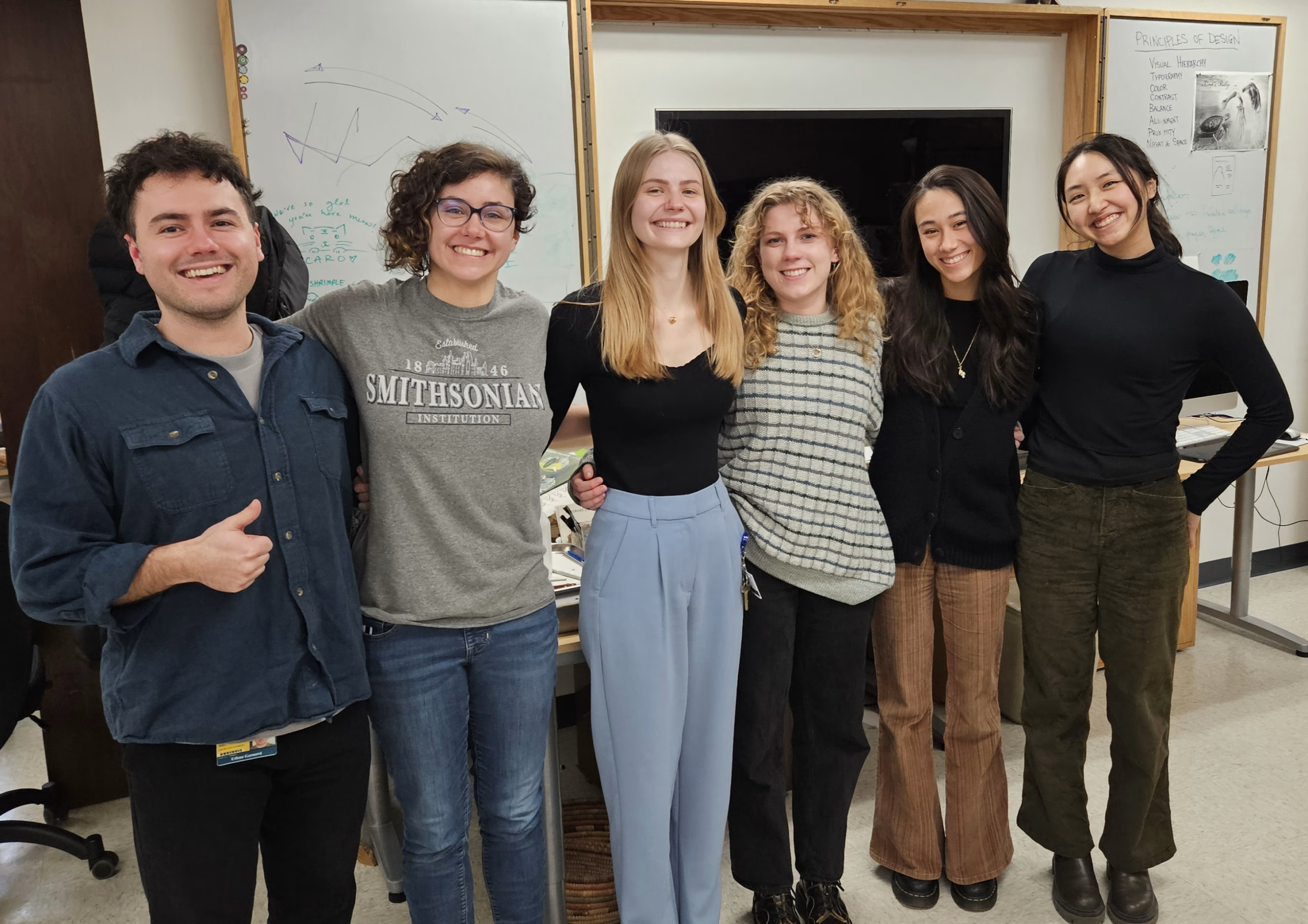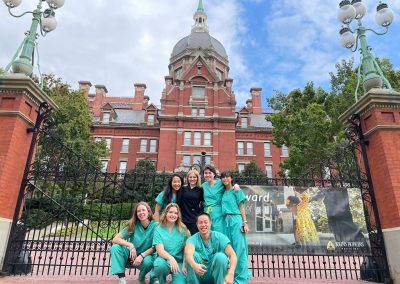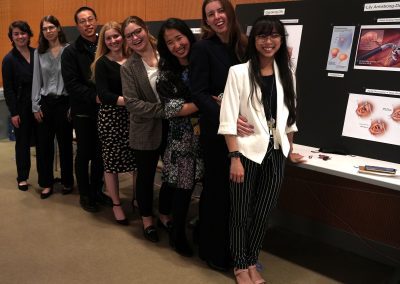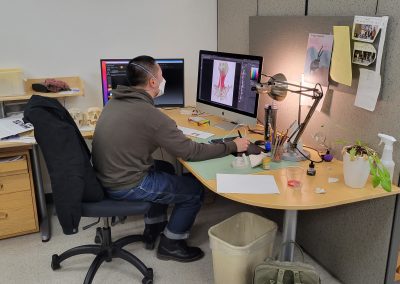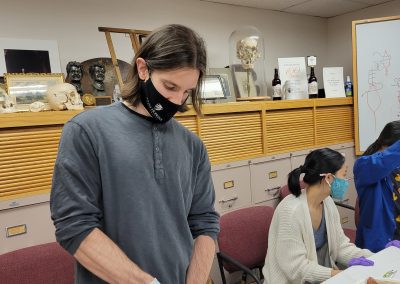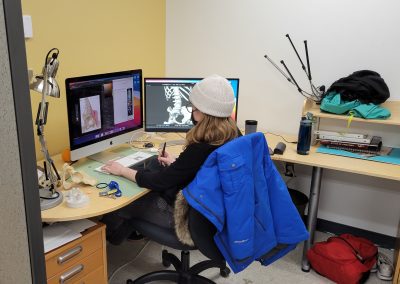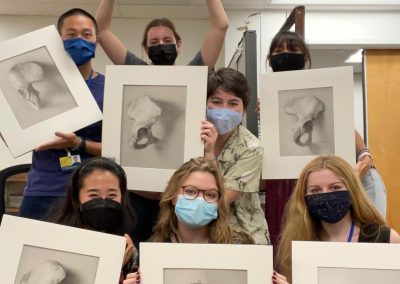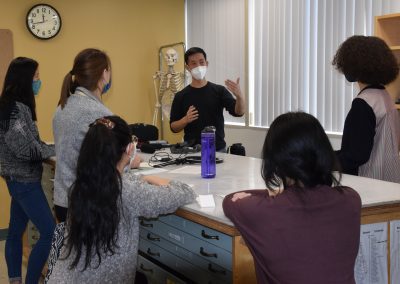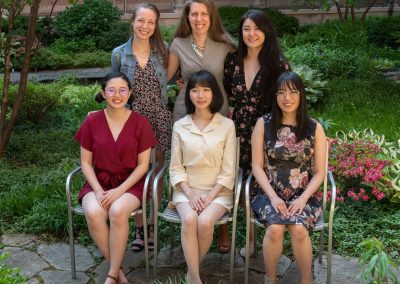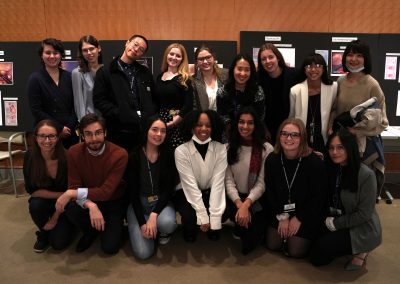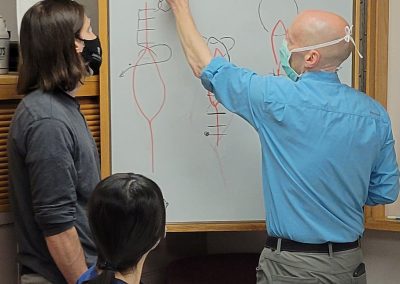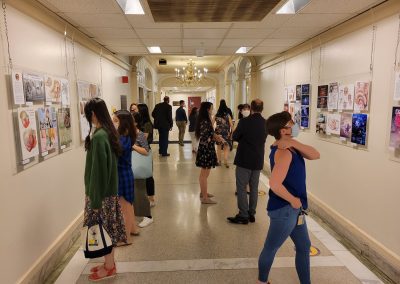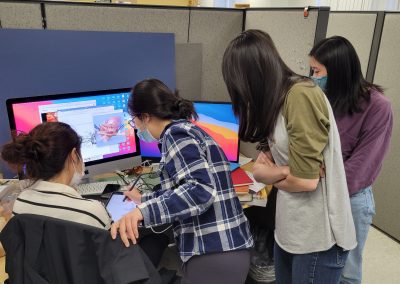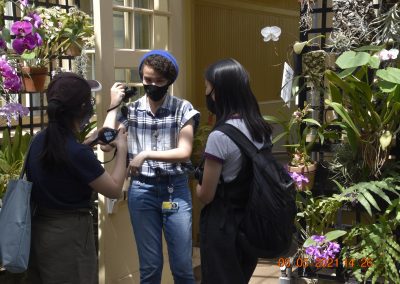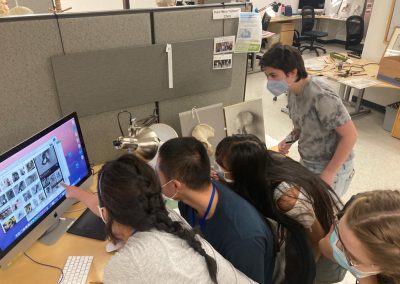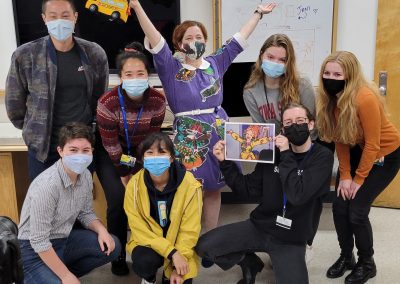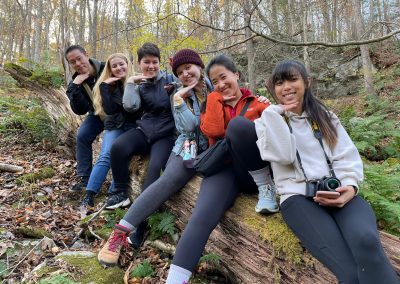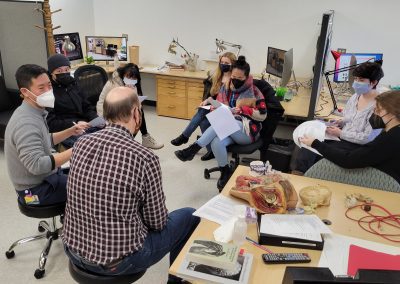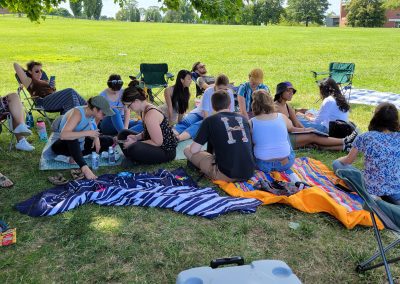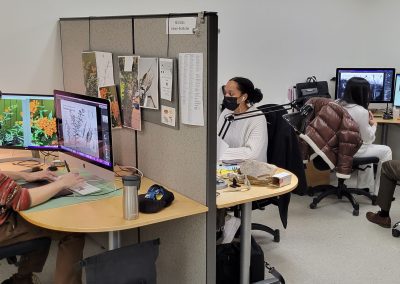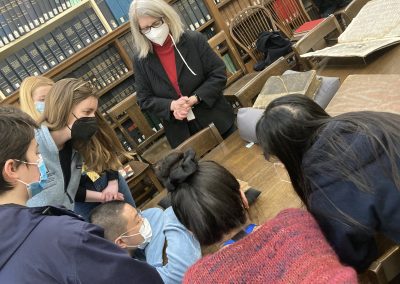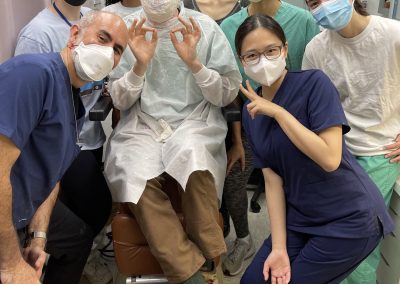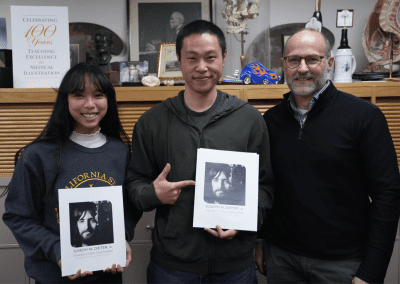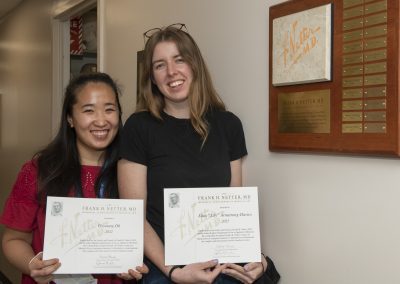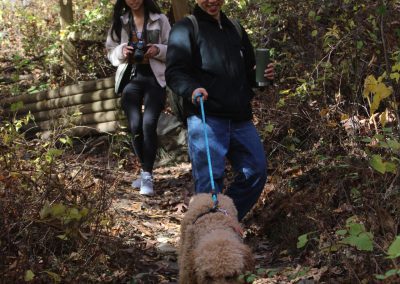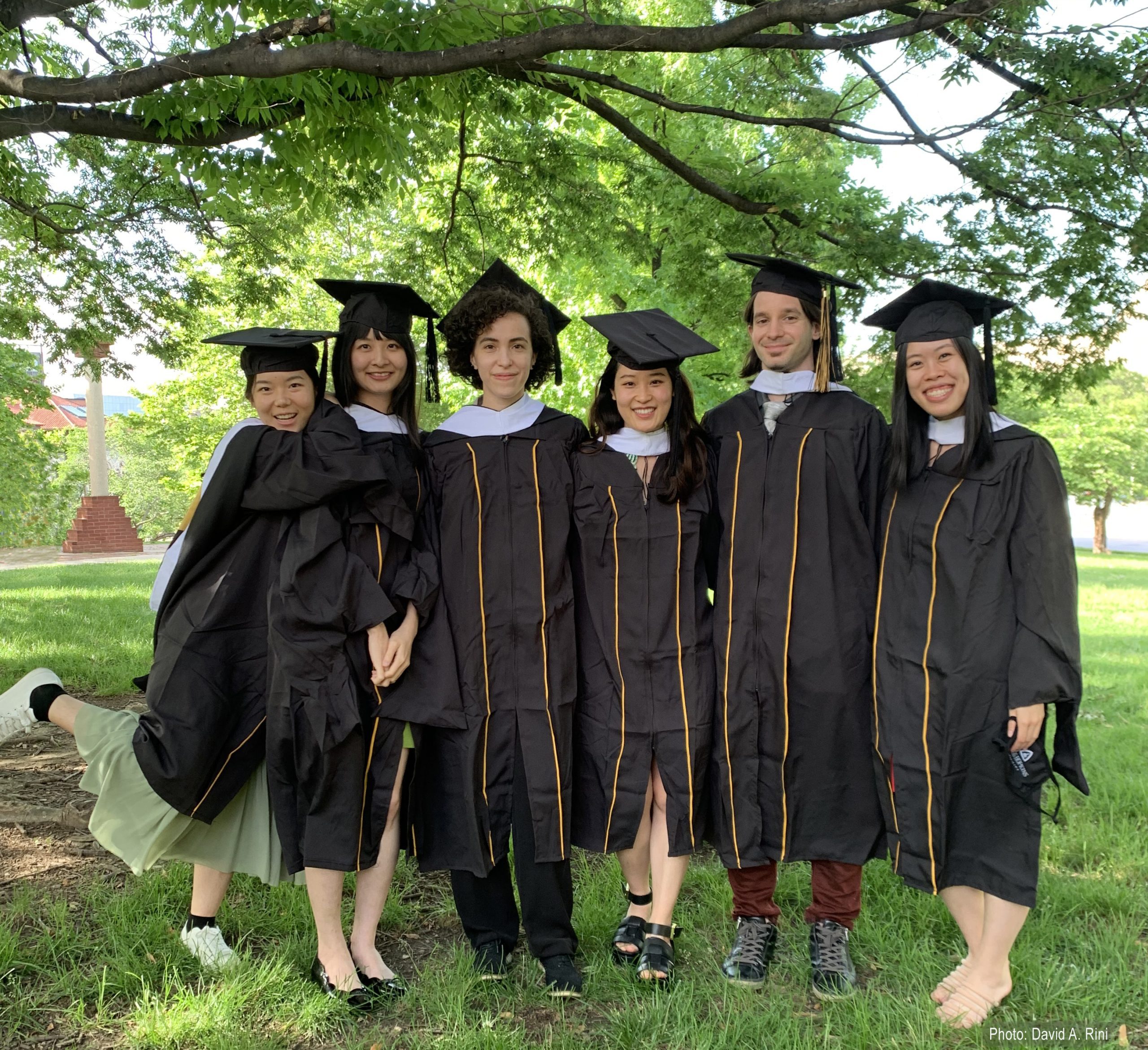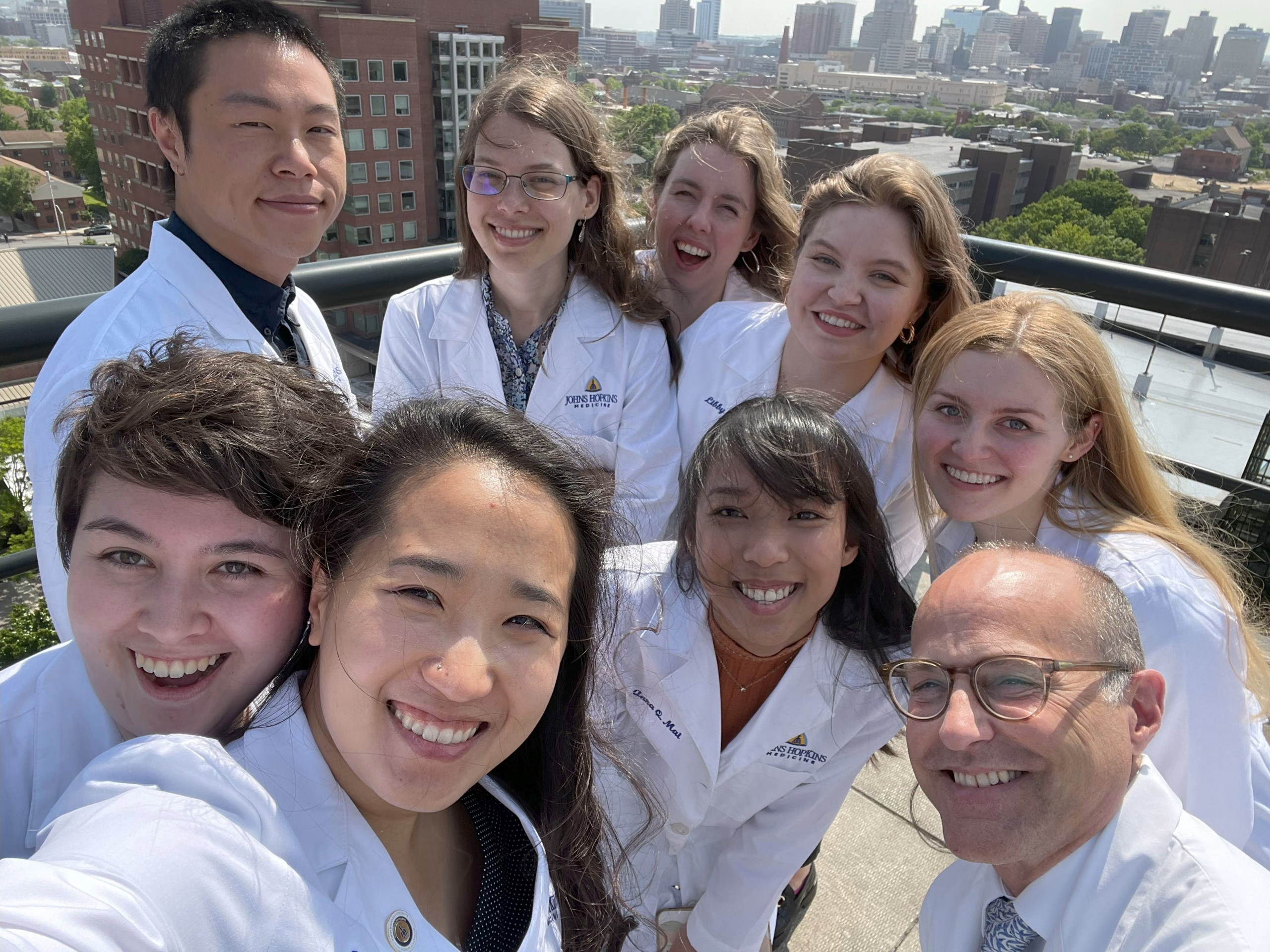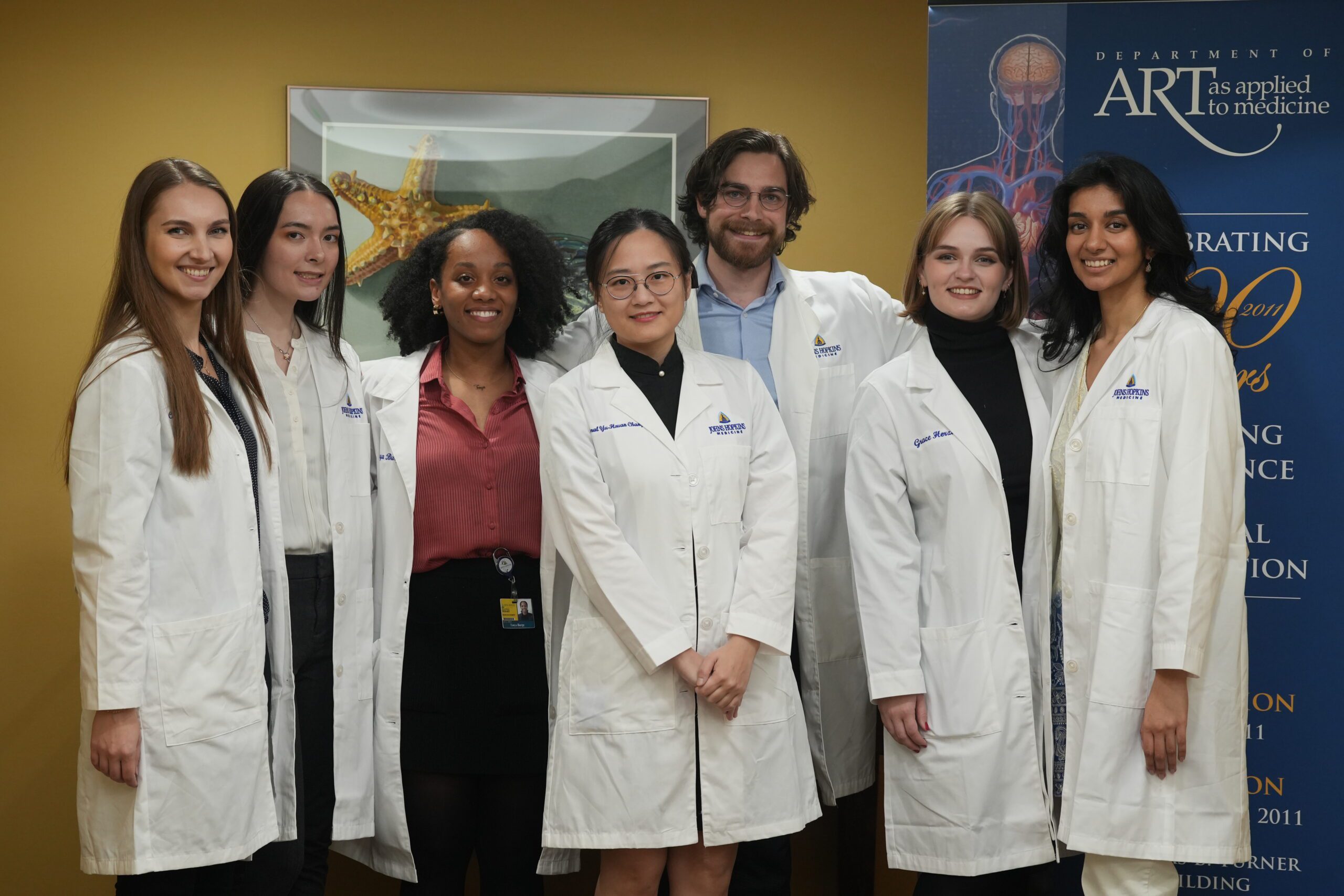Welcome MBI Interviewees
Congratulations on your invitation to interview for the Medical and Biological Illustration (MBI) graduate program. The goal of this process is to find students with intellectual curiosity and a passion to communicate medicine and science through dynamic visuals. Taught by expert faculty, our program prepares students for successful futures in medical illustration.
This process includes completion of the School of Medicine Graduate Programs Application and two Interviews with program faculty.
School of Medicine Application
The application includes:
- Three letters of recommendation.*
- Transcripts from all colleges and universities attended.**
- Statement of interest in the program.***
- Application fee.
*Recommendation Letters: one – Science faculty; one – Art instructor; one – faculty of your choosing. Letters are uploaded by letter writers into the application system.
**Transcripts from all universities and colleges can be uploaded to the application. Unofficial transcripts are fine for the application; however, International transcripts must be translated into English. Do not mail documents unless requested.
***In the Personal Statement of Interest and Career Objectives, our faculty want to read about your interest in our program and in medical and biological illustration as a profession, as well as your career objectives. This should be the focus of your statement. If you happen to have research experience which is relevant to your decision to pursue medical and biological illustration, then you may wish refer to this experience in your statement. If not, please disregard the prompt to list research experience in the Personal Statement instructions.
Email address for secure-system digital Transcripts:
Email: [email protected]
Institution Code for GRE or TOEFL scores (optional):
5316 – Johns Hopkins University PhD Medicine
Interviews
The Medical and Biological Illustration faculty love teaching and have a passion for the field of Medical Illustration. They are interested in getting to know each candidate through the interview process to discover those who will take full advantage of the rich learning resources at Johns Hopkins and will share their passion for the field. Candidates will have two remote interviews, one with Program Director Rini and one with a Faculty Group. The interviews, which will be conducted over Zoom, typically last about 45 minutes to one hour, and will likely occur on the same day. Interview days and times are limited, but Academic Program Coordinator, Ebony Robinson, will work with you to find a mutually convenient time.
To protect everyone’s privacy, and to abide by Maryland state law, we will not be recording your interview.
Additionally, faculty do not consent to recording of the interviews, so we ask that Candidates refrain from doing so as well.
Program Director Interview
Each candidate will meet with Director Rini for a 1-on-1 interview. This conversation is a great opportunity to get to know one another, discuss the MBI Program, and the field of Medical Illustration. It’s also a good opportunity to discuss topics that are more appropriate for an individual session, such as financial aid or other matters.

David Rini
Professor, Graduate Program Director
David Rini is the Director of the Medical and Biological Illustration Graduate Program, a Certified Medical Illustrator, and a Professor in the Department of Art as Applied to Medicine and the Graduate Program in Cellular and Molecular Medicine. He earned his MFA in Medical and Scientific Illustration from the University of Michigan in 1989. Prior to joining Hopkins in 1993, he established and directed the Department of Neurosurgical Illustration at the Mayfield Neurological Institute in Cincinnati, Ohio. He is a former Chair of the Board of Governors of the Association of Medical Illustrators (AMI) and was inducted as a Fellow of the AMI in 2001. Director Rini was the 2021 recipient of the Johns Hopkins Medicine Graduate Student Association’s Faculty Teaching Award. In addition to his work as a medical and biological illustrator, David is also an accomplished portrait artist.
Faculty Group Interview
Each candidate will meet with 3-5 full-time faculty for a group interview. This conversation also offers an opportunity to get to know one another and to hear about the program and the medical illustration profession from multiple faculty.
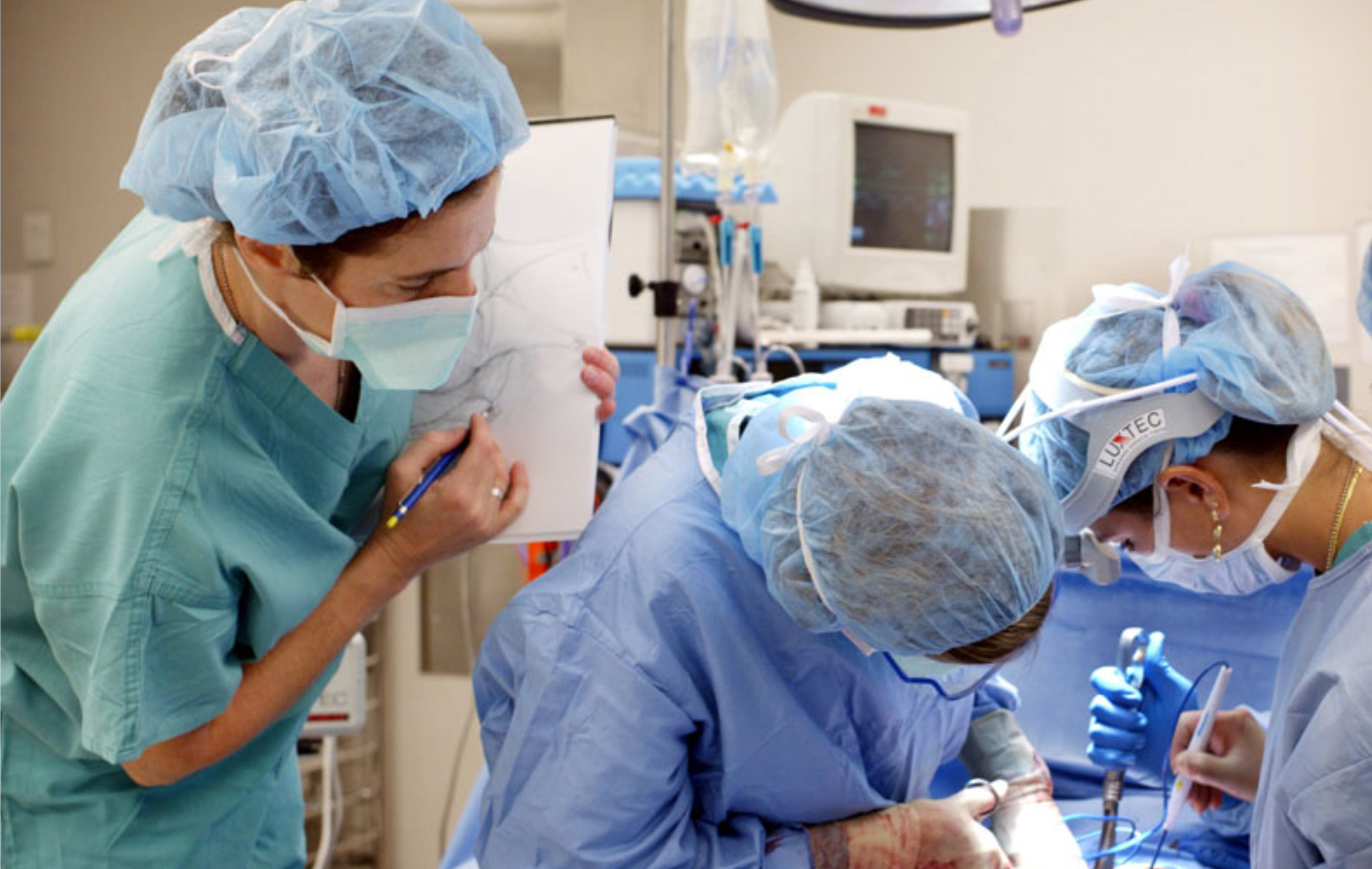
Cory Sandone
Professor
Department Director
Cory Sandone is the Director of the Department of Art as Applied to Medicine, a Certified Medical Illustrator, and a Professor. She earned her MA at Hopkins in 1986. A Past President (2014-2015) and former member of the Board of the AMI, Cory teaches coursework in surgical illustration, research and thesis, portfolio preparation and professional development. She is a voracious reader and is proud to be a resident of Baltimore City.
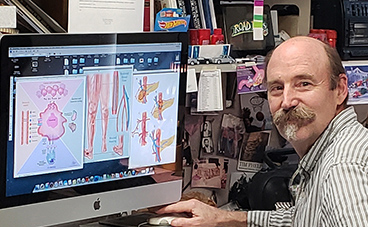
Tim Phelps
Professor
Director of Production
Tim Phelps is the Director of Illustration Services and a Professor in the Department of Art as Applied to Medicine. Tim graduated with an MS in Medical and Biological Illustration from the University of Michigan in 1981. A Past President (1998) and Past Chair of the Board (1993-94) of the AMI, Tim teaches Pen and Ink, Editorial and Conceptual Illustration, and Biological Illustration. Tim also has immersed himself in the history of flame painting and has painted over 600 diecast cars.
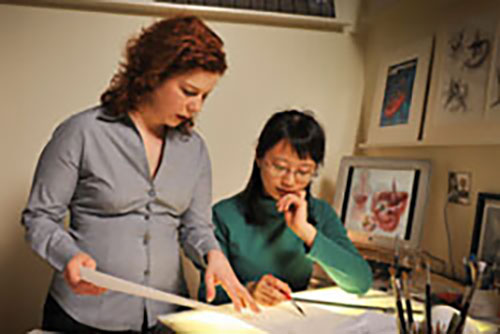
Jennifer Fairman
Associate Professor
Assistant Director of Production
Jennifer Fairman is the Assistant Director of Production and an Associate Professor in the Department of Art as Applied to Medicine. Jennifer graduated with an MA in Medical and Biological Illustration at Hopkins in 1999 and an MPS in the Business of Art and Design at MICA in 2017. A former member of the Board of Governors and inducted as a Fellow in 2007 of the AMI, Jennifer teaches Raster and Vector Illustration, 2D Animation, Web/Interactivity Design and Business Practices. She reminds us all to “make cicada time.”
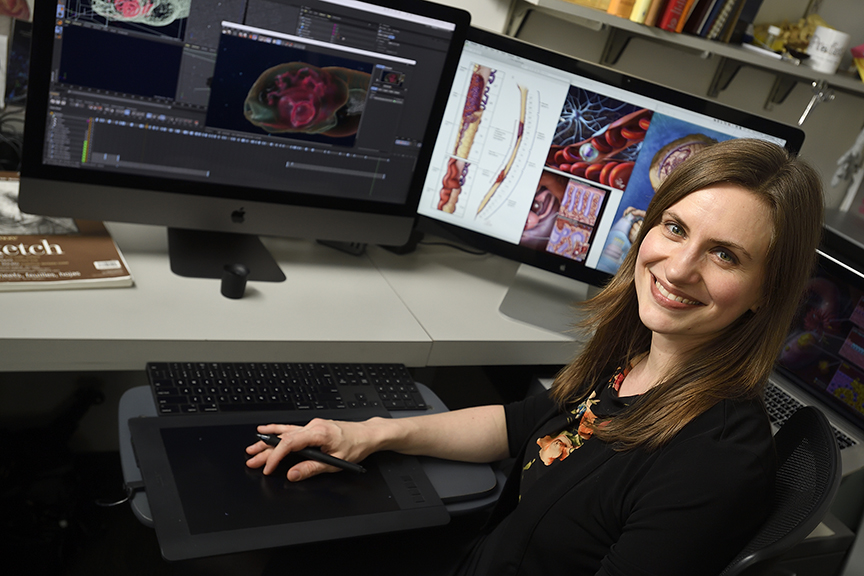
Lydia Gregg
Associate Professor
Director of Operations
Lydia Gregg is the Director of Operations, a CMI, and an Associate Professor in the Department of Art as Applied to Medicine and in the Division of Interventional Neuroradiology. Lydia is also the Director of the Visualization Core Laboratory. Inducted as a Fellow in 2013 and former Chair of the Board (2016-2017) of the AMI, Lydia teaches Neuroanatomy, Radiological Visualization, and organizes the Molecular and Cellular Visualization course. Lydia’s research includes cerebrovascular anatomy, embryology, pathology, and testing efficacy of patient education materials.
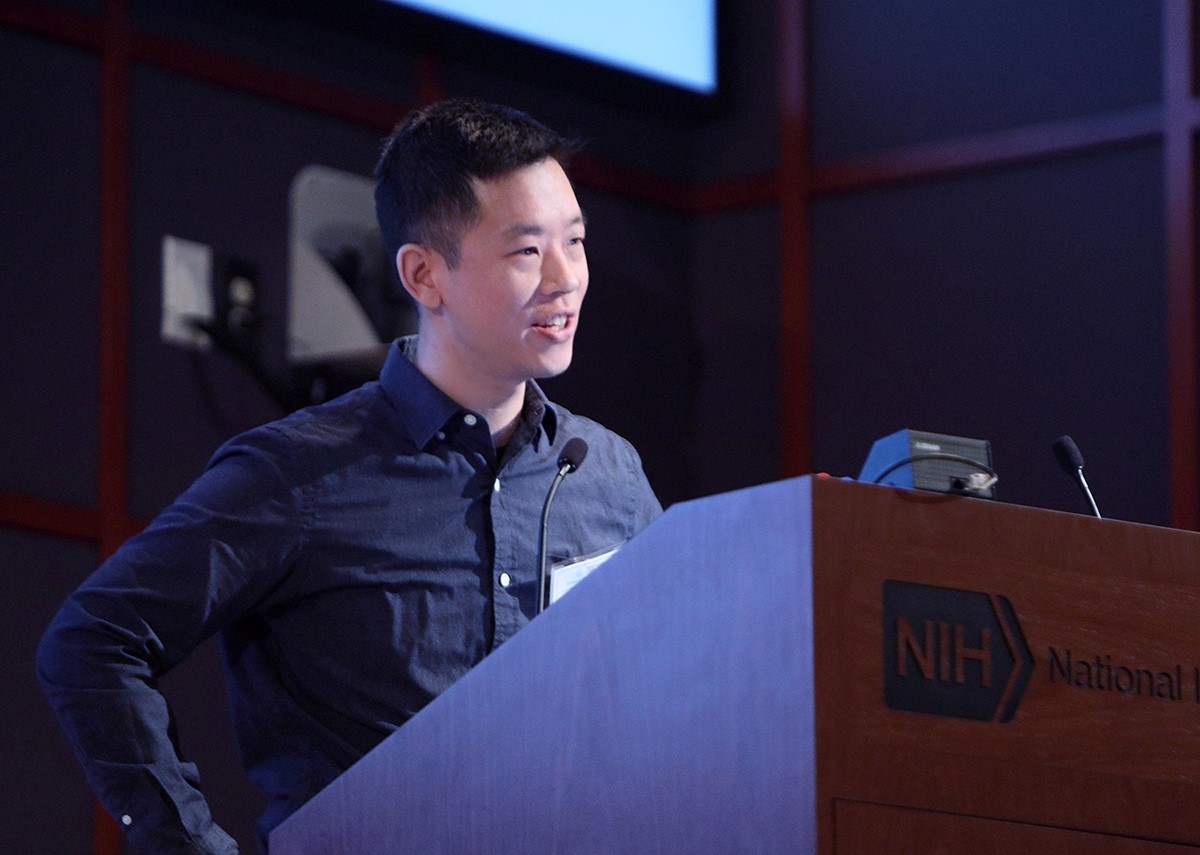
Jeff Day
Assistant Professor
Jeff Day is an Assistant Professor in the Department of Art as Applied to Medicine. Jeff graduated with an MD at Case Western Reserve University in 2006 and an MA in Medical and Biological Illustration at Hopkins in 2015. Prior to joining Hopkins in 2019, Jeff worked as a Digital Media Producer at the NIH’s National Library of Medicine. Jeff is the primary investigator for a 2020 Johns Hopkins DELTA Award project, and teaches Intro to Design and Design of Interactive Learning Experiences. Jeff also is a fan of board games and bird watching.
We have a talented and diverse faculty where each member plays a unique role in making our graduate programs truly “World Class.” To see a full list of the faculty with links to individual pages containing bios and sample artwork, as well as a list of the staff that support our Department, Clinic, and Graduate Programs, please visit the Faculty-Staff page of our website.
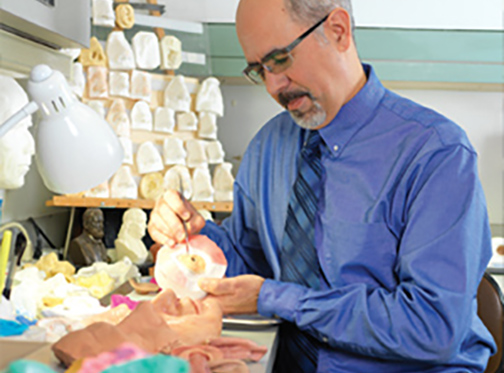
Juan Garcia
Associate Professor
Director Facial Prosthetics
Though he does not participate in the MBI Group Interview, Juan Garcia is a vital member of the core faculty. Juan is the Director of the Facial Prosthetics Clinic and the Clinical Anaplastology Program, and he is an Associate Professor in the Departments of Art as Applied to Medicine; Otolaryngology-Head and Neck Surgery; and Plastic and Reconstructive Surgery. Juan is the Past President of the International Anaplastology Association, a Certified Clinical Anaplastologist, and he teaches Medical Sculpture and Ophthalmological Illustration to MBI students. Juan also is very active in his sons’ Boy Scout Troup.
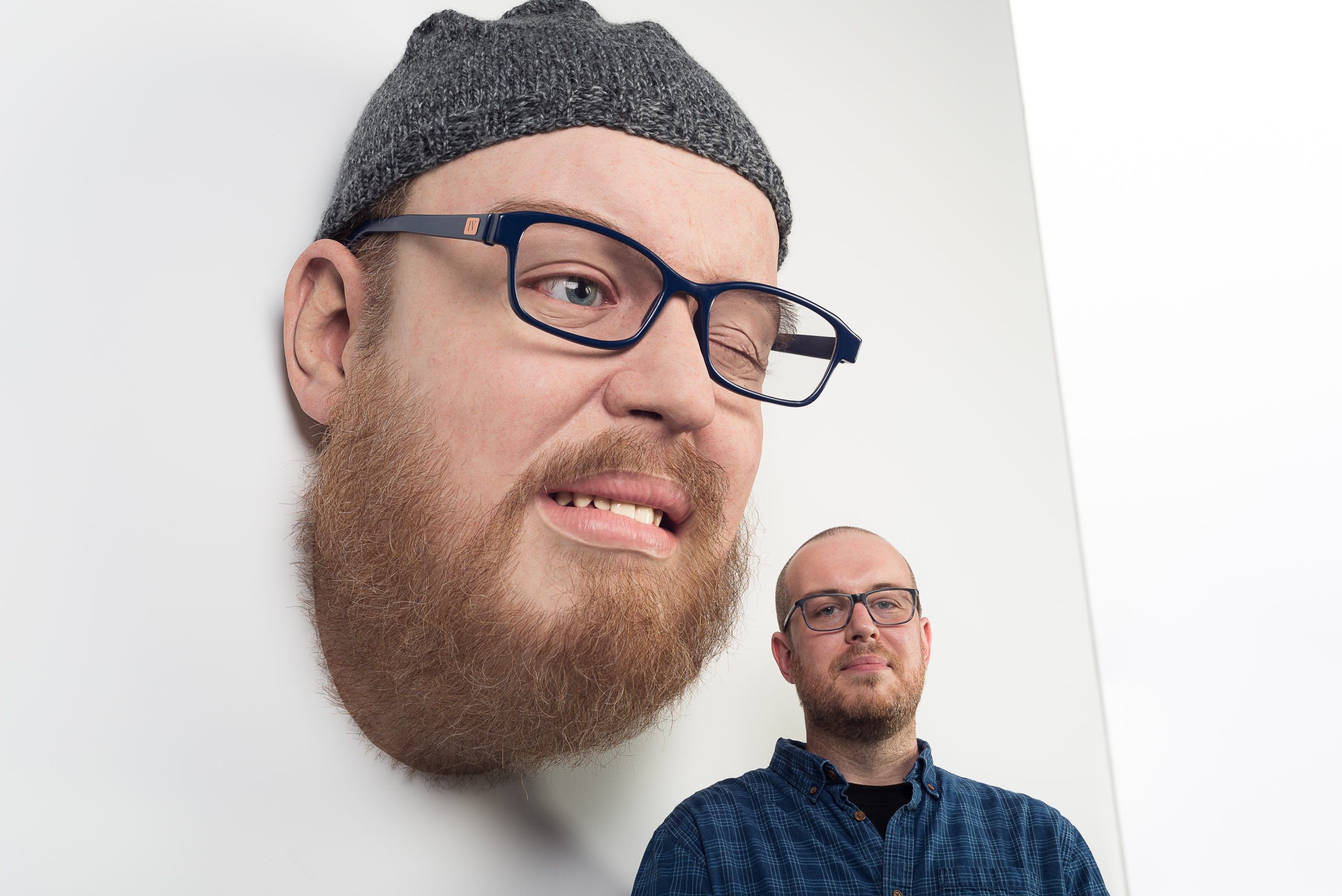
Andrew Etheridge
Instructor
Though he does not participate in the MBI Group Interview, Andrew Etheridge is a vital member of the core department faculty. An Instructor in the Department of Art as Applied to Medicine and the Clinical Anaplastology graduate program, Andrew treats patients in the Facial, Eye & Body Clinic. Andrew is also Vice President of the Board for Certification in Clinical Anaplastology (BCCA), and former Director of the Board of the International Anaplastology Association (IAA). Certified in mastectomy care, pedorthics, and orthotic fitting, Andrew started as a sculpture artist and continues to exhibit his work.
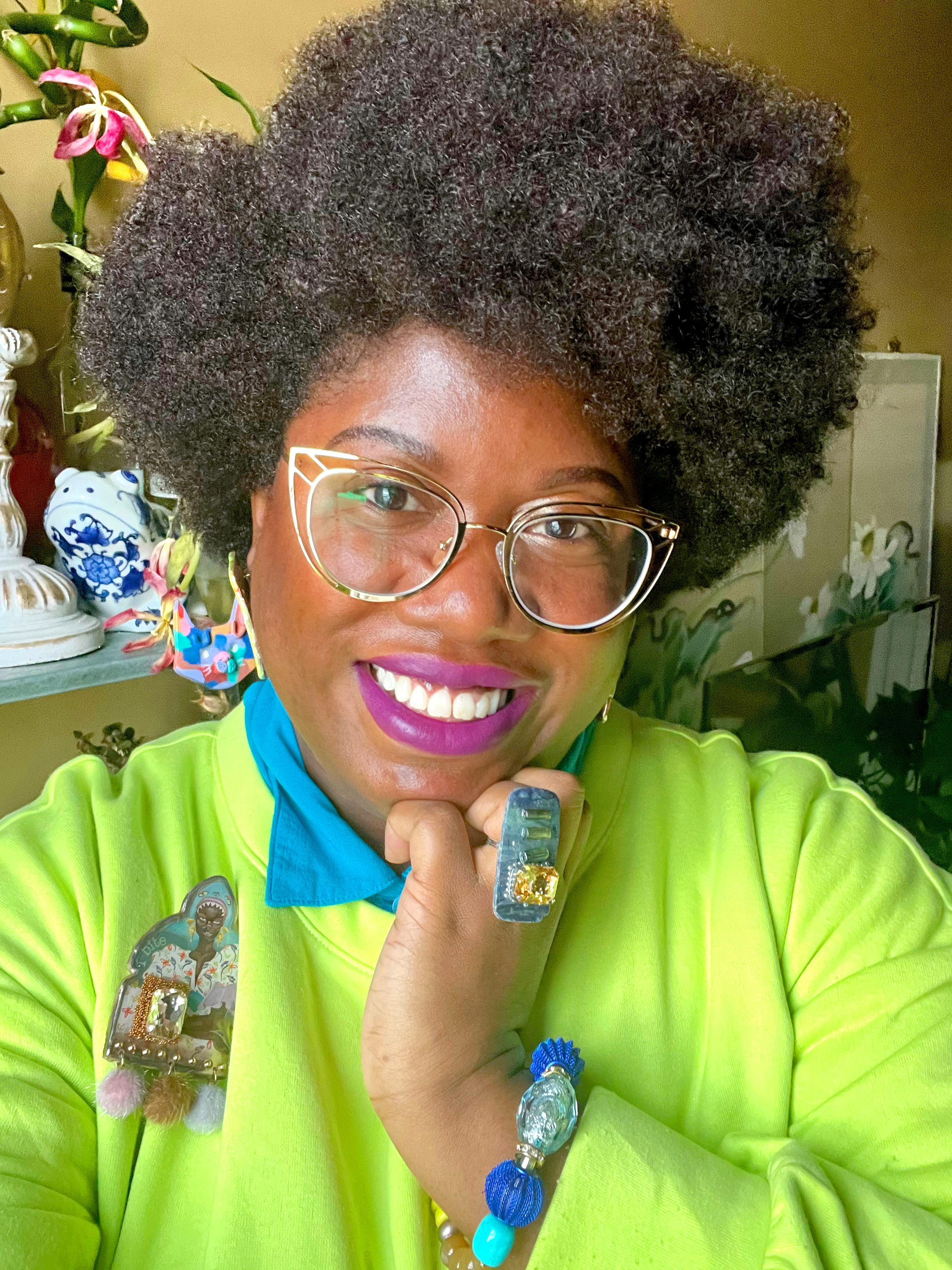
Ebony Robinson
Academic Program Coordinator
Ebony helps counsel candidates through the application process and assists MBI program directors, faculty and students. She loves helping, learning, and sharing what she learns along the way. If you need help understanding AAM policy or have questions about the program or application process she would be happy to help. In addition to making art and jewelry, she also enjoys reading on her free time. It is important to note, Ebony does not interview or evaluate candidates.
Meet the Students
The current MBI students will be hosting two informal Student / Applicant Meet and Greet Events in February following the interviews with faculty (Zoom, times and days to be announced). We encourage all candidates to attend one of these events. The students have a wealth of information about the program, what it’s like to be a student at Hopkins Medicine, and about living in Baltimore. You’ll have the chance to see student art work and to ask about life in the program.
These informal events are not part of your interview process, but are intended to help you learn the “inside scoop” on the MBI student experience.
Program Resources
Baltimore Virtual Tour
A tour of the city of Baltimore. (2 min.)
Baltimore Neighborhoods
A look at Baltimore’s Neighborhoods with the JHU Medical Residents and Fellows. (5 min.)
Hopkins Medicine Campus
About Baltimore, Hopkins and the Department of Art as Applied to Medicine
Positive Placement and the Profession
If there’s anything the past few years made abundantly clear to all, there is a growing need for clear accurate visuals to communicate the latest advancements in science and medicine. Effective medical illustration can depict a disease pathway, explain a newly discovered molecular mechanism, teach a new surgical procedure, or describe how a medical device works. Through their work, medical illustrators bridge gaps in medical and healthcare communication.
Graduates of the Johns Hopkins Medical and Biological Illustration program have a strong history of high employment rates with some students receiving job offers prior to graduation. Of the graduates from 2020-2024, 97% were employed within the first 6 months and only 5% were self employed (that drops to 3% self employed at 12 months after graduation).
Looking ahead, medical illustrators will continue to fill the vital role of illuminating medicine. Growth areas in medical illustration include: 3D modeling and animation, virtual and augmented reality, and interactive design.
MBI Grads of 2023
Courtney, Gilbert, Gyyoung, Emily, Lily, Anna, Libby, and Miranda (with Director David Rini)
International Applicants

Office of International Services (OIS)
The Office of International Services (OIS) assists all international students with the processing of their F1 Visa paperwork. If you receive an offer to attend our program, data from your ApplyYourself formal application will be transferred into the JHU student information system and OIS will be notified. OIS will then contact you with instructions for the visa process.

International Visa Process
For a preview of the process, take a look at the OIS website.
Scholarships

Department Scholarship Resources
Departmental Scholarships are awarded to all students who matriculate into the program. There is no separate application process to receive these funds which are awarded in part on merit. These funds typically are close to half of the tuition. This makes further funding essential for all students.
Free Application for Federal Student Aid (FAFSA)
We encourage all US Citizens and US Permanent Residents to apply for Federal Student Loans by submitting the FAFSA. Unfortunately, these loan funds are not available to international students.
After Departmental Scholarships, after Stafford Loans (Federal Graduate Student Loans), whatever amount is remaining on the ‘Draft Estimated Expenses’ is the total possible Grad Plus Loan. Both Stafford and Grad Plus Loans start with the FAFSA application. Information on the FAFSA is available on the following website:
- Hopkins Office of Financial Aid
- Hopkins Medicine Graduate Students Information
- FAFSA School Code – E00235 for Johns Hopkins University School of Medicine
- SOM CSS Profile School Code – 5346

Outside Scholarship Resources
Of course, loans are funds you eventually have to pay back. Scholarships are award funds you don’t have to pay back. Each student will know more than anyone at Hopkins whether or not they meet each scholarship’s criteria. The following list is by no means exhaustive; it is meant as a starting point for finding information on additional or specific sources of funding.
When applying for funding, you might need confirmation of acceptance, a letter explaining the field of medical illustration, a letter of support from the accepting department or school, or something similar. Please send Ebony the details ([email protected]). She can either write the letter or send a request to the most appropriate person in the Department.
Websites to Search for Scholarships
- Johns Hopkins University – Graduate Funding
- BestAccreditedColleges.org
- EdVisors.com
- Fastweb
- Petersons
- Scholarships.com
- StudentScholarshipSearch.com
- Google Search
- Free Money for Graduate School – a book by Laurie Blum

Specific Scholarships
- American Association of University Women (AAUW) – Women (US and International)
- Fulbright Scholar Program – International students only – find programs by country

